'I asked President Gustavo Petro about my decision, and he didn't object': Iván Cepeda talks about his presidential candidacy for the Historic Pact.

From Pasto, Nariño, Senator Iván Cepeda officially announced his candidacy last week for the internal consultation of the Historic Pact for the 2026 presidential elections . In an interview with EL TIEMPO, Cepeda affirmed that he has every right to participate in the electoral contest, just as former President Álvaro Uribe did after the trial, and assured that, if he becomes president, he will maintain relations with Venezuela and follow the current government's line regarding Israel.
Why did you decide to launch at this time? Well, in reality, I hadn't considered this possibility because I believe that assuming the position of Head of State is a task of great responsibility. That doesn't mean I don't feel capable of doing it. It seemed like a task that wasn't within my political or personal ambitions, and I had never really considered it seriously. Now, once voices, invitations, and calls began to appear, I had to consider it, and, at a stage like the one we are in, when very close social organizations, which I greatly respect, have requested it, I made the decision. I made it like every decision I've made in political life: consciously, with enthusiasm and determination. Now that the announcement has been made, I must acknowledge that it has generated enthusiasm and hope in many sectors, and, obviously, that makes me see that the commitment to the decision is even greater.
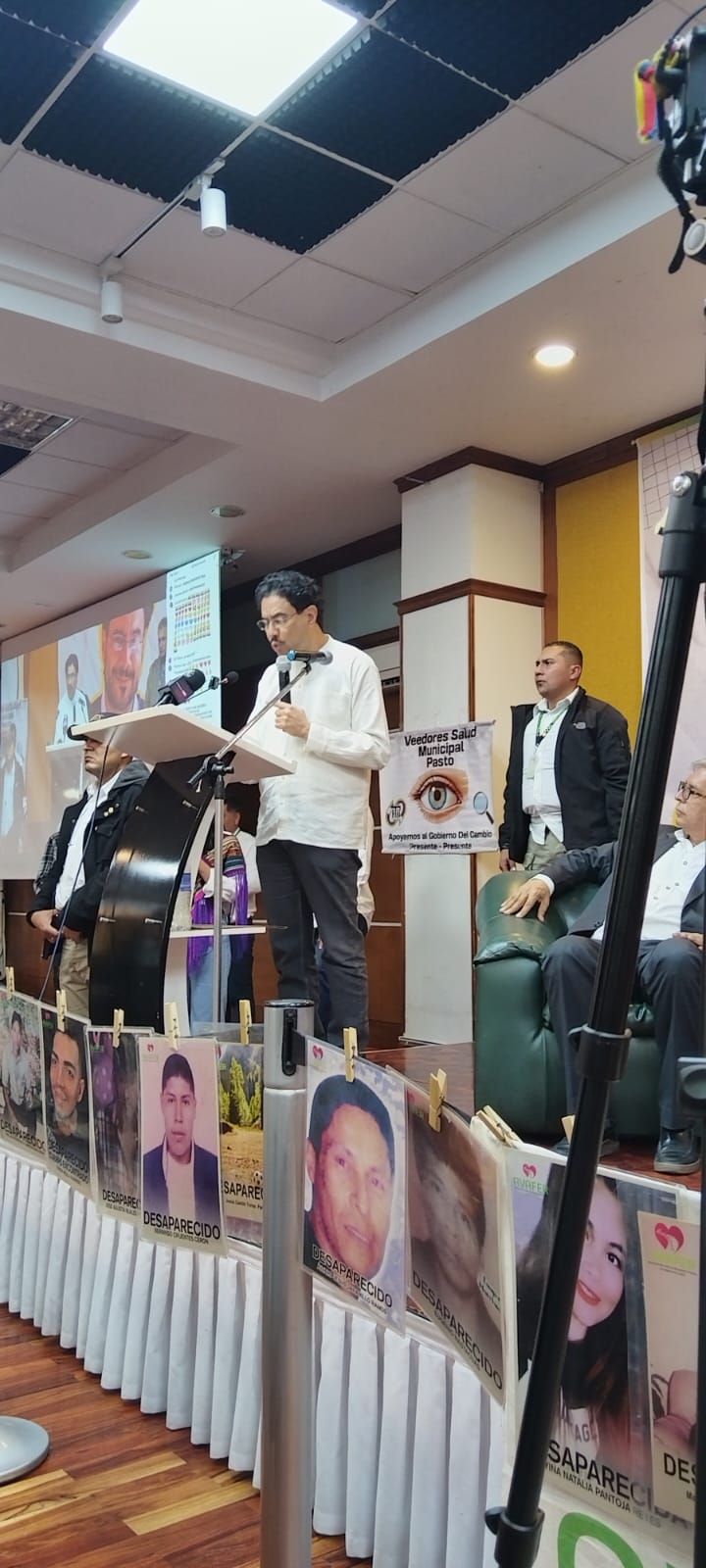
Senator Iván Cepeda during his campaign launch. Photo: Camilo A. Castillo. EL TIEMPO
Because a demand of this nature hadn't arisen. At this point in my political life, despite many circumstances related to what has happened—not only because the trial is certainly being brought up here, but also for many other reasons—the time has come. As in all political life, there are moments when one of these possibilities or commitments arises, to the point where they become unavoidable. This isn't the first time this has been discussed. I remember that in 2022, it was even being asked for, and some pollsters were also gauging me, but obviously, it was Gustavo Petro's time, and I clearly not only said so, but I made the decision not to put my name forward. On this occasion, I had made that same decision, but, I repeat, that call has come, and I see that it has aroused enthusiasm.
Did you speak with President Petro before making this decision? Obviously, I consulted with him. I asked him, and he didn't object to the decision, which, for me, was enough.
This aspiration is inevitably influenced by the trial of Álvaro Uribe. Did the court ruling influence and drive your decision to run? I believe it's an important moment in my personal life; it's not just any kind of legal battle, but I would say it's not the determining factor. For me, other factors come into play, including whether the organizations at the heart of our project think so. That, for me, is the determining element and ingredient in this decision, not whether or not I've been successful in this or that endeavor. Because for me, politics—and I try to be consistent about this—is a service more than a personal aspiration, a career, or a goal set by an individual. I believe in the project, in the collective, and in decisions that are always made with the communities and the people in mind.
Do you think the legal issue could distort the political campaign? That may have some impact, but I don't think it will, as such, affect the outcome of the citizens' decision. Here, citizens are going to make a decision based on ideas, proposals, and programs. I hope that will be the central element of those decisions. As for whether one or another sentence in this case will have an influence, it's possible, but I don't think it's the determining factor. Now, I would also say the following: former President Uribe is engaging in politics, as he has done all his life, and I am doing the same because we are political actors. What would not be admissible is that someone who has been convicted by the courts is not questioned and can engage in politics, while someone who has been a victim of their actions, already proven by a court ruling, cannot do so.
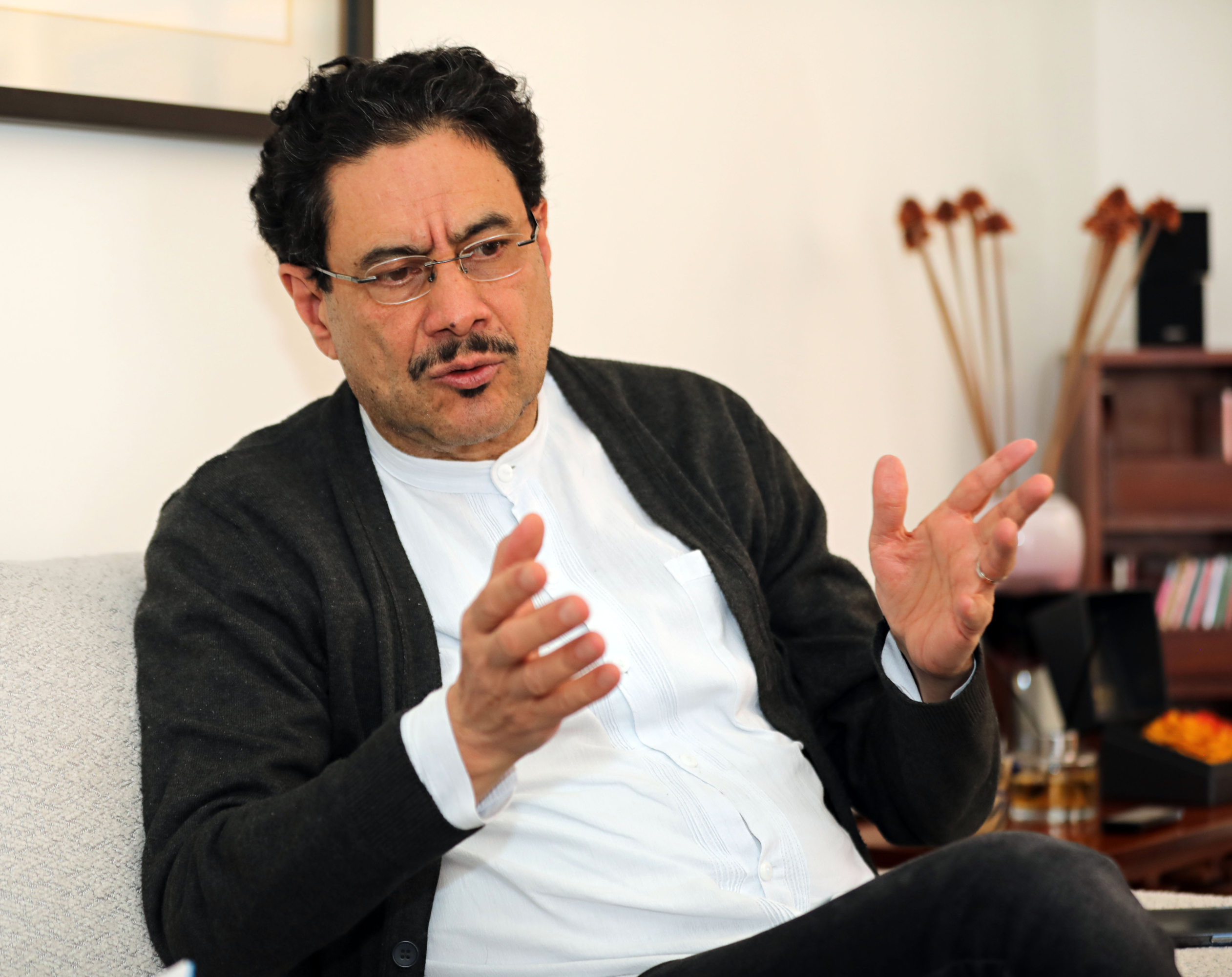
Iván Cepeda, senator of the Historic Pact and presidential candidate. Photo: Milton Díaz. EL TIEMPO
Yes, I've done so consistently with each and every one of them, in a very respectful and constructive dialogue, ensuring that our work as pre-candidates is as coordinated as possible. Before, I did it as a leader and senator; now I do it as a pre-candidate.
It's said that some of them would be willing to support you and withdraw their aspirations. Have they expressed this support to you directly? I support them, yes, but we haven't talked about resignations or endorsements, and I want to be very clear about that. I respect each of those aspirations very much, and from my perspective, I won't ask, nor have I ever considered asking, anyone to withdraw their name from this contest, because I believe that it should be the citizens who make the decisions here.
Daniel Quintero, who is generating resistance within the Pact, will be participating in that referendum. Do you agree with other candidates that he should participate in the March referendum? I believe your name is already on the list of pre-candidates, as has been said, and it will be the citizens who make the decision, in this case regarding the Historic Pact.
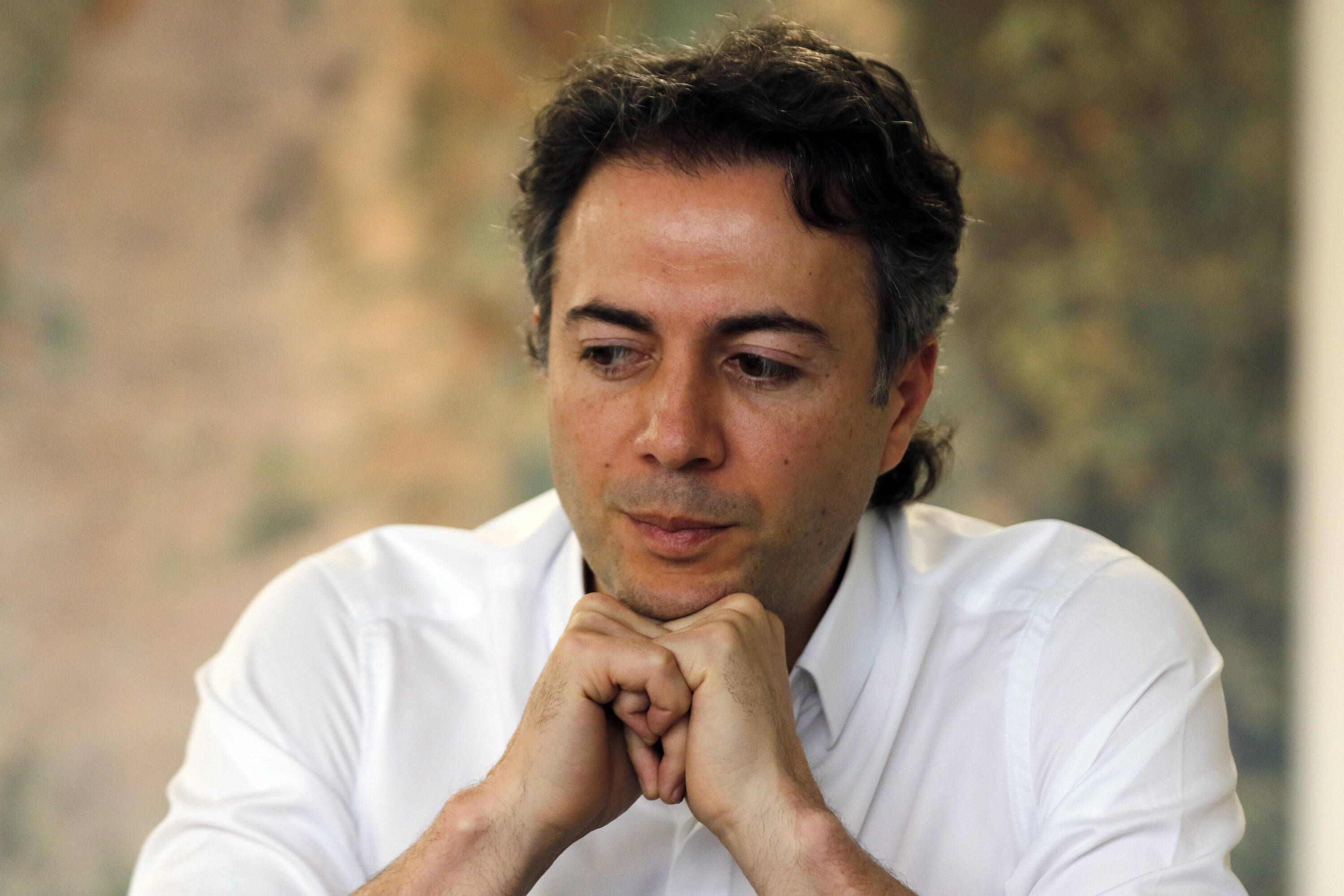
Daniel Quintero, former mayor of Medellín . Photo: Jaiver Nieto Álvarez. EL TIEMPO
Like all things in my life, with great authenticity. I'm not going to become someone else, I'm not going to create a persona for this election. I'm not a fan of showmanship, or of transforming myself to achieve a goal or provoke a kind of psychological effect on voters. I am what I am: a person who says what I think and does what I think. In other words, I'm not a creation of electoral advertising. So the voters see what they see, and what they see are my proposals, my life, my deepest convictions, my program, which is the same program of the Historic Pact, surely updated after a deliberative exercise, placing some emphasis and perhaps making some changes in relation to priorities. But the program I defend is the program we have sustained in these years and that, surely, we will develop in the coming ones.
You talk about austerity during your campaign. Is it possible to compete against political machines with that strategy? I have argued, unsuccessfully, I must say, for years that a salary cut for members of Congress is needed, and I hope that, when I become president, I can make that aspiration a reality: not only with regard to the salaries of members of Congress, but also starting with the salaries of the president and ministers. I want to examine this situation because I believe that austerity should be a principle of political action. When politics begins to slide down that swampy and, at times, easy path of having more and more resources to spend on absolutely unnecessary things, it can lead to corruption. In other words, for me, waste can mean a path to corruption.
In this campaign, we're seeing some fairly belligerent rhetoric from different quarters. How can we conduct politics in such a hostile environment and avoid falling into the same trap? With respect and ideas, of course, and also with firmness. I, of course, adhere to the principle of respecting my colleagues, but also my adversaries. I have practiced this throughout my political career, and I will also make it a reality in this campaign. This does not mean that I will not defend myself when attacked. I will do so, not by attacking people or responding with insults, insults, or a smear campaign, but with the tools provided by the rule of law. Even in recent days, I have had to resort to those mechanisms and procedures, because former President Álvaro Uribe and his children, and the director of his political party, have unleashed a campaign of insults, slander, and threats, which I must obviously counter with legal action.
Do you see this as an orchestrated campaign to undermine your candidacy? Well, if former President Uribe's son, Tomás Uribe, uses his Twitter account to call on citizens to provide alleged information that proves or demonstrates links with the FARC or drug trafficking, I have to conclude that there's a campaign underway, because that was the same campaign his father waged. What's more, I don't know to what extent this is a campaign by the son and not, again, by the father, who, through his Twitter account, summoned dozens of false witnesses to testify against me. The result of that was what ended up happening: a series of bribes and procedural frauds that led to a conviction.
How do you interpret former President Uribe's decision to request that his trial not expire? That's a political and electoral ploy, because he could have done it at any time. What's more, he could have done it when requested at trial. It's worth remembering that the victims' group, through one of their lawyers, at a time when there was a danger that the statute of limitations on the criminal case would actually expire, requested that Uribe waive the statute of limitations, and at that time, that possibility was rejected. The question is: why now? What's new in this whole process? Well, what's new is that there's already a conviction. What's new is that we're now certain that a decision will be issued. Previously, there was a decision planned, before the terms expired, and so, now that this certainty exists, the former president decides to waive the statute of limitations. What he's seeking, quite simply, is to continue campaigning without a judicial decision that could eventually deprive him of his liberty.
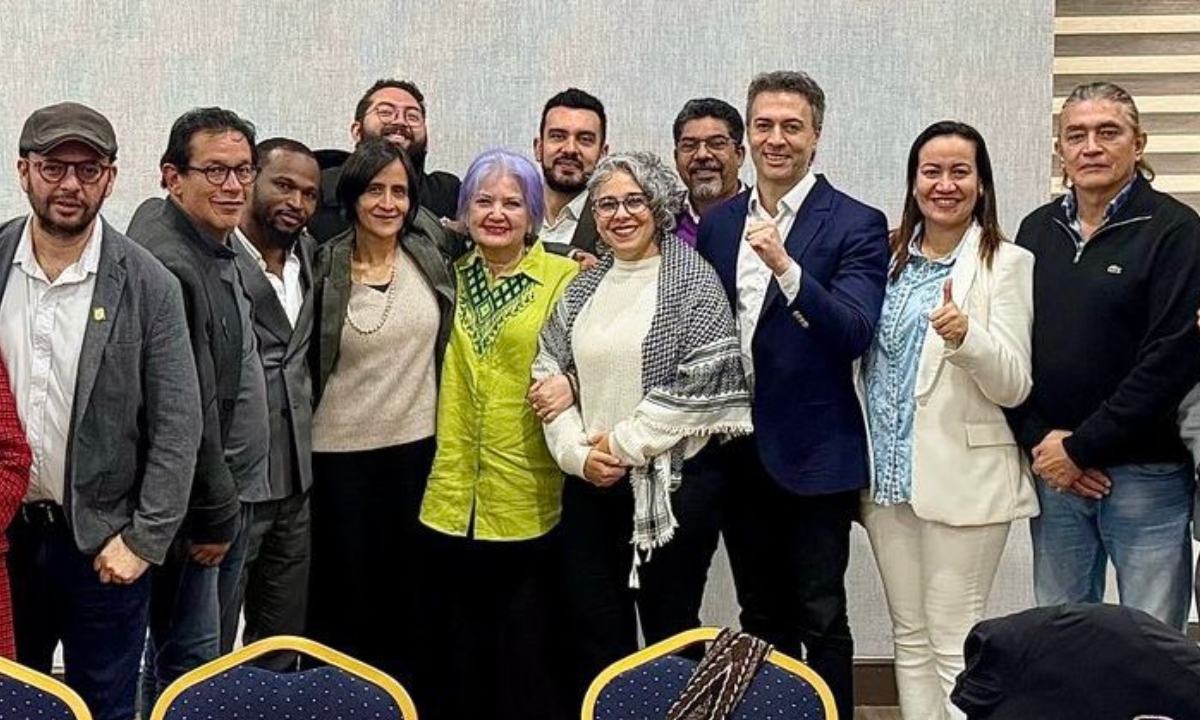
Photo of the seven Historic Pact pre-candidates for the October referendum. Photo: @PactoHistórico
I am absolutely committed to building a broad front once we complete our internal decision-making process. In fact, we are currently in talks and discussions with various sectors to that end, because I am aware of the need to govern with a diversity of positions. It is very important that we agree on the same program, but that the governing coalition represents the broadest possible range of political forces. And not only that: when I come to power, I will seek to achieve one or multiple agreements that involve the broadest spectrum of political, social, and economic forces in the country to resolve the problems.
But that was what President Petro proposed at the beginning of his administration, a strategy he later regretted. Why persist in this approach? Because it is the only one that can represent the path to solving the problems, or some of the most serious problems facing the country. If we fail, as a nation, to agree on a number of fundamental state policies, we will not be able to advance the change we want for Colombian society. I am referring to issues such as peace, drug trafficking, climate change, our foreign relations; in other words, aspects that I believe go far beyond an ideological or unilateral stance and require the participation of all the visions that exist in the country.
You've emphasized that you would follow President Petro's government program. Don't you think that could work against you? We will continue the most relevant and successful aspects of the government, and also consult the public about criticisms and aspects that need to be modified. Peace policy is a necessary policy: I will not form a government that doesn't have a peace policy; that's out of the question. My government will have a peace policy. Now, will it be identical to the one we currently have? There will probably be changes, but those changes will be made once we consult with many people and have a clear view of what the positive results have been, what the less so, and where the failures lie. I don't agree with the idea that there are government policies that have completely failed.
What themes do you stick with? We will continue the most relevant and successful aspects of the government, and also consult the public about criticisms and aspects that need to be modified. Peace policy is a necessary policy: I will not form a government that doesn't have a peace policy; that's out of the question. My government will have a peace policy. Now, will it be identical to the one we currently have? There will probably be changes, but those changes will be made once we consult with many people and have a clear view of what the positive results have been, what the less so, and where the failures lie. I don't agree with the idea that there are government policies that have completely failed.
Where has it gone wrong? First, corruption. We need to develop an early warning system and a more effective fight against corruption, because it has been very painful for those of us who are part of this political project to have to face scandals like the one that occurred at the National Risk Management Unit. That cannot happen again. Now, the problem is that the Colombian state is rife with corruption; it's not a problem of one government or another. We must attack corruption in all its forms and, above all, at its root. So there will be a very serious reflection there, and rather than making announcements at this time, we will develop a position that will allow us to strike as effectively and powerfully as possible at the corrupt.
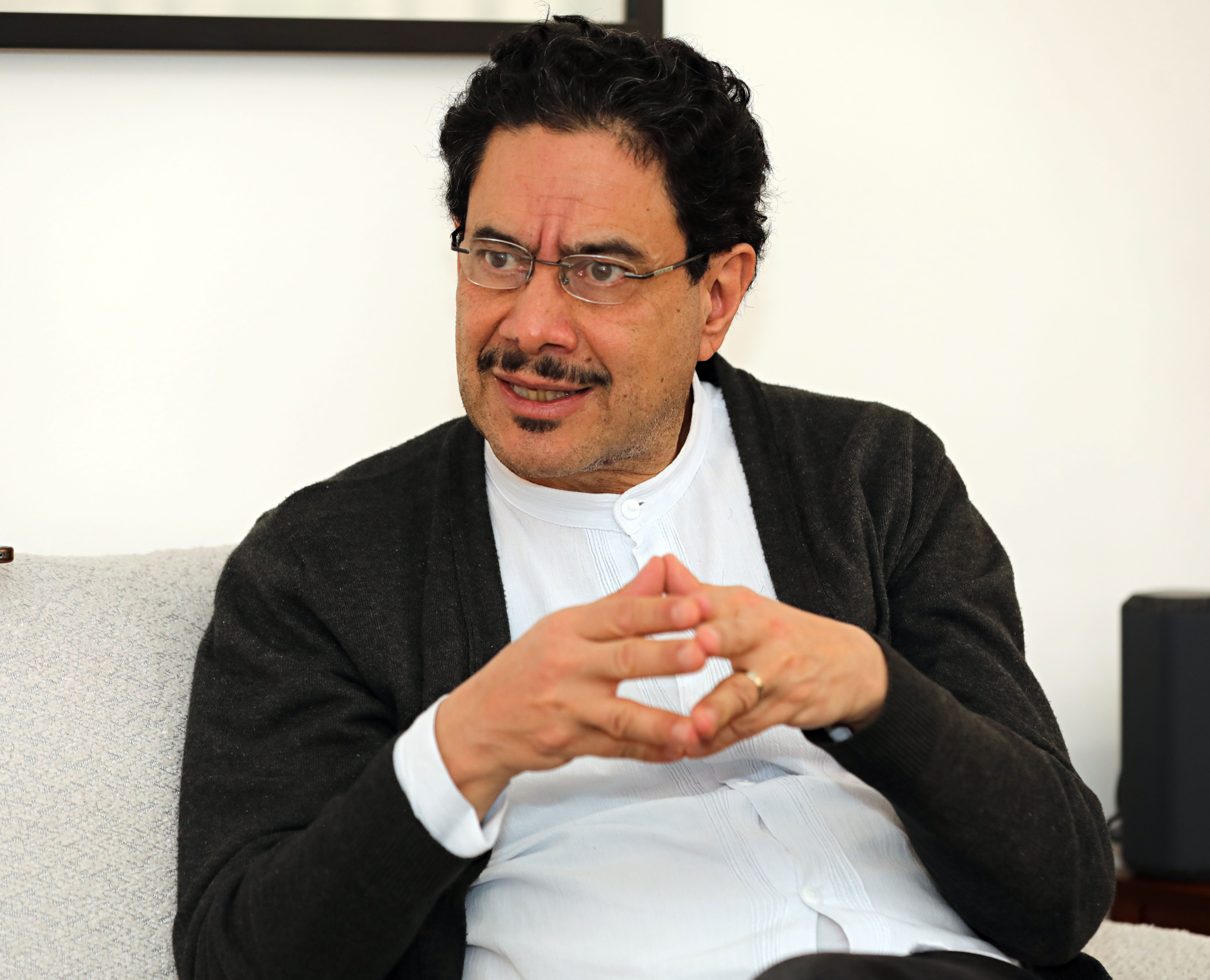
Iván Cepeda, senator of the Historic Pact and presidential candidate. Photo: Milton Díaz. EL TIEMPO
When there are mistakes, errors, and problems, they cannot be hidden. Here, we must, first of all, acknowledge where those mistakes have occurred, and appointing Mr. Olmedo López was a terrible mistake, one that the president himself acknowledged before Congress, for which he apologized to Congress and the country in one of his inaugural sessions. Second, we must examine this matter. I repeat: although it is a well-worn topic, constantly appearing in public debate and surrounded by many commonplaces, the government needs to equip itself with the tools for a policy that, in this case, must be both criminal and penal, in order to effectively combat corruption and recover the resources that are being lost in this way. I believe that this may be one of the keys to alleviating the fiscal deficit, among other things.
What is your proposal to fight crime? We must ensure that security policy, although it may sound like a cliché, goes hand in hand with peace and reconciliation policies. It is necessary to strengthen the State's social presence in the territories and, at the same time, promote public-private partnerships that allow for the transformation of illicit economies into legal and sustainable productive projects. This is not just about replacing crops, but rather about replacing entire economies. Secondly, we must undoubtedly strengthen the Public Forces and the Police in large cities to more effectively confront the urban insecurity that seriously threatens the lives and property of citizens. And, at the same time, we must severely combat the criminal structures that persecute social leaders, signatories of the Peace Agreement, environmental defenders, and those who defend human rights in the territories.
If you become president, will you maintain all seven peace talks? In cases where there is verifiable progress and prospects, of course. I am in favor of dialogue. I was at the table with the ELN for two and a half years, and although the negotiation process is currently suspended, I continue to firmly believe in the need to move forward with a peace agreement with that organization. We are talking about an armed conflict that has lasted 60 years and can only be resolved through dialogue. My expectation is that, during the remainder of this administration, progress will be made in these negotiations and that there will be subsequent developments that will allow for a definitive conclusion.
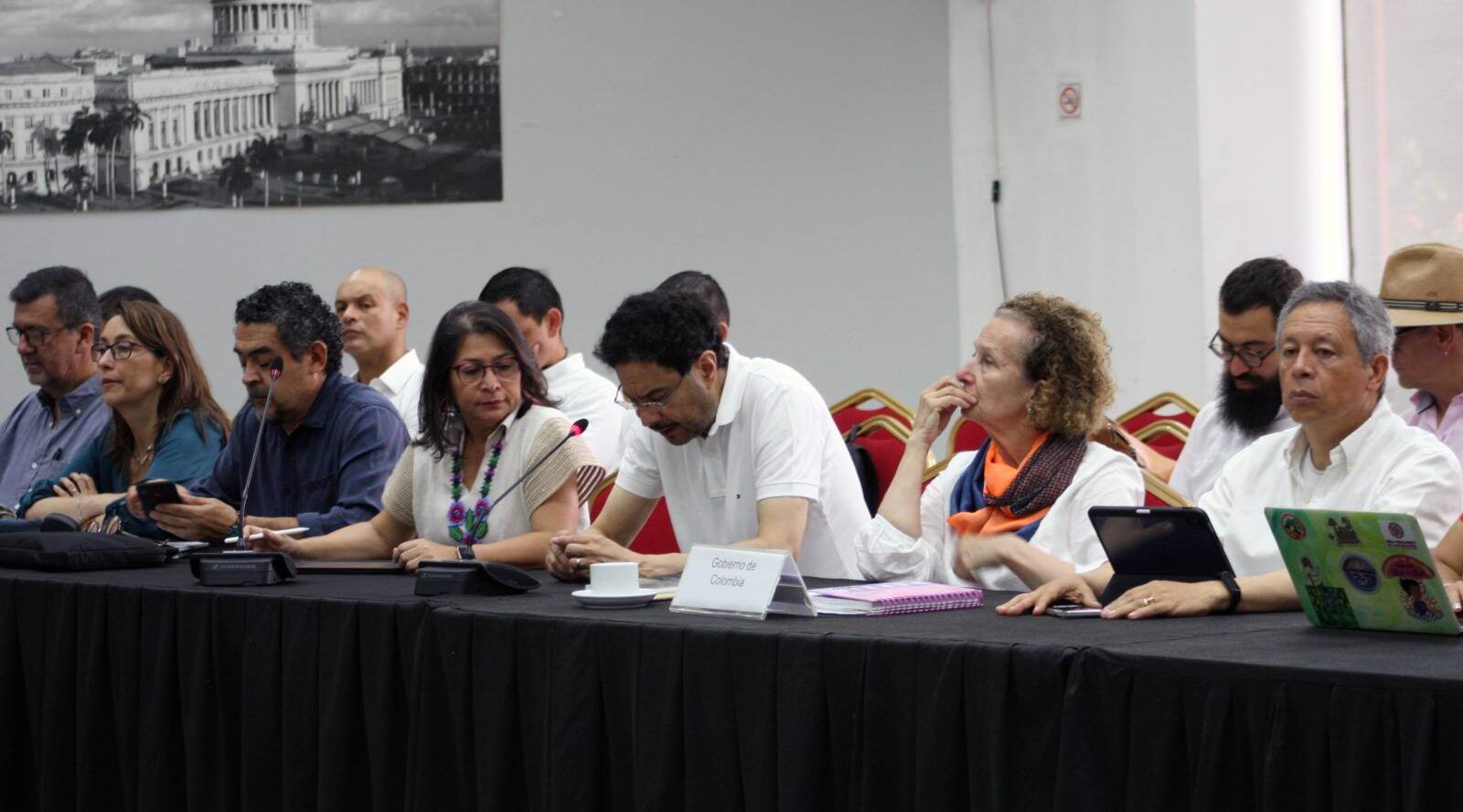
Government Delegation at the meeting with the ELN. Photo: Office of the Peace Commissioner
I find the thesis that violence and war occur because there is a peace policy absurd. I don't agree with that; I don't think it's a tenable thesis, and it's also contrary to what's more. I'll put it this way: the previous government, the government of former President Iván Duque, didn't have a peace policy, and the reality is that under that government, armed groups not only grew but also strengthened exponentially. So, the reasons why there is violence and armed conflict, and why the groups' territorial control is growing, lie elsewhere; not because there is a peace policy, but because there are illicit economies, because the drug trafficking economy has not only become transnationalized but globalized, not because crops are growing, but because illegal drug markets and illegal mining are growing. So, that's where the emphasis needs to be. The problem of insecurity has to do, I repeat, in many places, especially in rural areas, with developing a territorial transformation of a social nature, with the presence of the State and also with alliances between the State and private enterprise.
If you become president, will you maintain the same stance on Israel? Yes, I believe there is no change, at least as of today, that would allow for a different policy. The current Israeli government has perpetrated and continues to perpetrate genocide, and I believe that with a government that is committing a crime of that nature, there can be no normal relations unless there is significant change, and that is the basis for judgment. But since we're talking about foreign policy, I would like to point out an emphasis I will place on foreign relations: today, due to all the circumstances surrounding international relations and the emergence of a multipolar world, the risk of nuclear war has increased. This is not a mere fear or conjecture: we are facing the reality of the possible use of nuclear weapons in any international armed conflict. So my government will launch an essential call for peace, for the pursuit of the impossibility of a confrontation of that nature occurring today, to be an international issue.
And Venezuela? The current government's relations, in my view, have been on the right footing. The Colombia-Venezuela relationship isn't just any kind of relationship. We have a border with 12 million people—five million on the Colombian side and seven million on the Venezuelan side—where there are very important economic interests for the country, and it's one of Colombia's strategic borders. So the policy we develop toward Venezuela must simultaneously combine our sovereignty, the defense of our principles, which are enshrined in the Constitution, of course, and in the international treaties we have signed as a State, but also the security, well-being, coexistence, and cooperation between both nations.
President Petro insists that the United States' anti-drug strategy in the Caribbean is a prelude to intervention. Do you agree? I see an unusual, absolutely disproportionate presence of the United States on the borders between Colombia and Venezuela, and that is surely a cause for enormous concern, because we have already heard some White House officials or members of Congress make statements that could be extremely dangerous. Any attempt to intervene militarily in Venezuela could lead us to unforeseeable and extremely dangerous scenarios.
CAMILO A. CASTILLOPolitical EditorX: (@camiloandres894)
eltiempo





